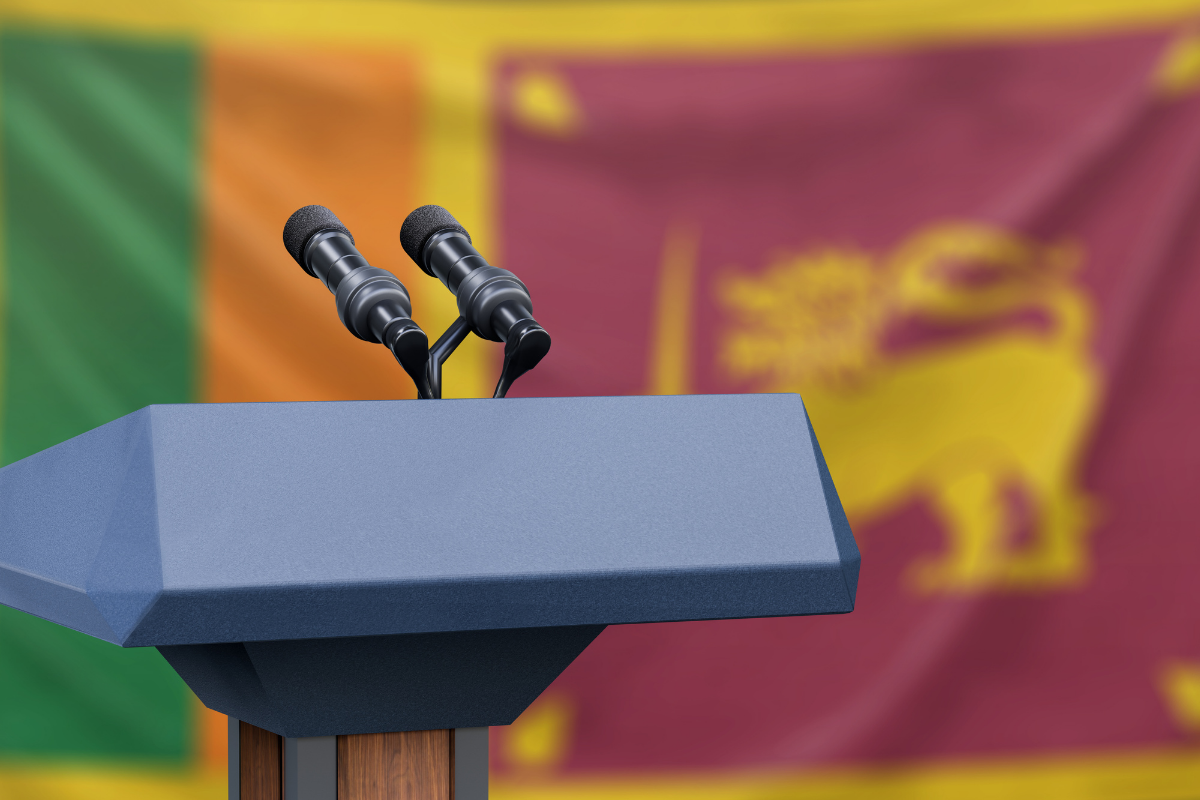Women continue to be underrepresented in politics in many countries, including in Sri Lanka. For democracy to function effectively, it is vital that women are equally represented in political decision-making. Demo Finland’s project that starts at the beginning of the year aims at increasing political representation of women in Sri Lankan politics.
Women’s participation in political decision-making is an important priority on its own and a prerequisite for equal and inclusive democracy. On the other hand, strengthening women’s role in political decision-making has been evidenced to correlate with greater investments in education, health care and social services. Hence, political empowerment of women facilitates societal well-being.
Gender quotas, along with proportional electoral systems, are among the most efficient ways for increasing women’s political representation.
Gender quotas are a concrete way for advancing women’s political participation. Quotas advance women’s representation in political debate and increase their likelihood to run for an office. According to V-Dem Institute gender quotas, along with proportional electoral systems, are among the most efficient ways for increasing women’s political representation, given that they concretely increase the number of female legislators. In Sri Lanka gender quotas have also played a role in advancing the representativeness of the democratic governance.
Gender quotas’ role in increasing women’s political representation
In 1960 Sri Lanka made history by electing Sirimavo Bandaranaike as its prime minister, as the first female prime minister in the world. In 1994 her daughter Chandrika Kumaratunga broke the glass ceiling by becoming the country’s first female president.
Despite these historical female politicians, women’s political representation has remained rather low in Sri Lanka. In international comparisons that measure the political representation of women, Sri Lanka ranks as one of the poorest performing countries. Of the country’s 225 members of parliament only 5 percent (12) are women. Only one of the government’s ministers is female. Sri Lanka also lags behind other South Asian countries in women’s political representation. For example, in Nepal 32.7 percent of the representatives in the Lower House of Representatives and 37.9 in the Upper House of Representatives are female.
At the local level improvements have been made as a result of 2016 amendment, which lead to the introduction of a gender quota for women to enter Sri Lankan local government in 2018. This quota asserts that 25 percent of elected legislators at the local government should be female. In Sri Lanka the impacts of the quota for women’s political representation are historical given that women’s political representation at the local government had not been above 2 percent. As a result of the gender quota over 2,000 women were elected to the local councils in the 2018 elections. Women’s political representation thus increased immensely from the previous 82. In Sri Lanka gender quotas have fuelled the development of a more representative democracy.
Towards a more inclusive Sri Lanka by increasing women’s political influence
Gender quotas have an important role in increasing the political ownership of women, but they alone do not guarantee equal opportunities for participation. Indeed, the increase in the number of female politicians in the Sri Lankan local government has not directly translated into equal shares of political power. Institutional, social and cultural barriers continue to pose several challenges to women’s political participation.
At the beginning of 2021, Demo Finland is starting a project in Sri Lanka together with the local One-Text Initiative (OTI), which aims to address these challenges and support women’s participation at the local level by providing training and networking opportunities. During the pilot project 2019–2020 a multi-party network of 40 female politicians was launched for the same purpose. All of these create conditions for more inclusive and equal political participation.
The role of political parties is significant, given that they are able to promote the selection of women to leadership positions and support and train women in political advocacy.
One of the main goals of the project is to address the underlying assumptions and perceptions of politicians, so that female politicians would be recognised as equal. This is vital given that female politicians are continuously viewed with scepticism. For example, many current female politicians have experienced harassment.
One the other hand, female politicians need support for building their political competences. The role of political parties in doing so is significant, given that they are able to promote the selection of women to leadership positions and support and train women in political advocacy. In Demo Finland’s new project, the role of political parties in strengthening the position of women will be emphasised in a new way.
Gender quotas are an important step towards more inclusive democracy in Sri Lanka. Yet, the work towards genuinely equal and inclusive democracy continues for a long time.
Additional sources used: Vijeyarasa, R. (2020) ‘Women’s absence in Sri Lankan politics: Lessons on the effectiveness and limitations of quotas to address under-representation‘, Women’s Studies International Forum, 81: 102371.

